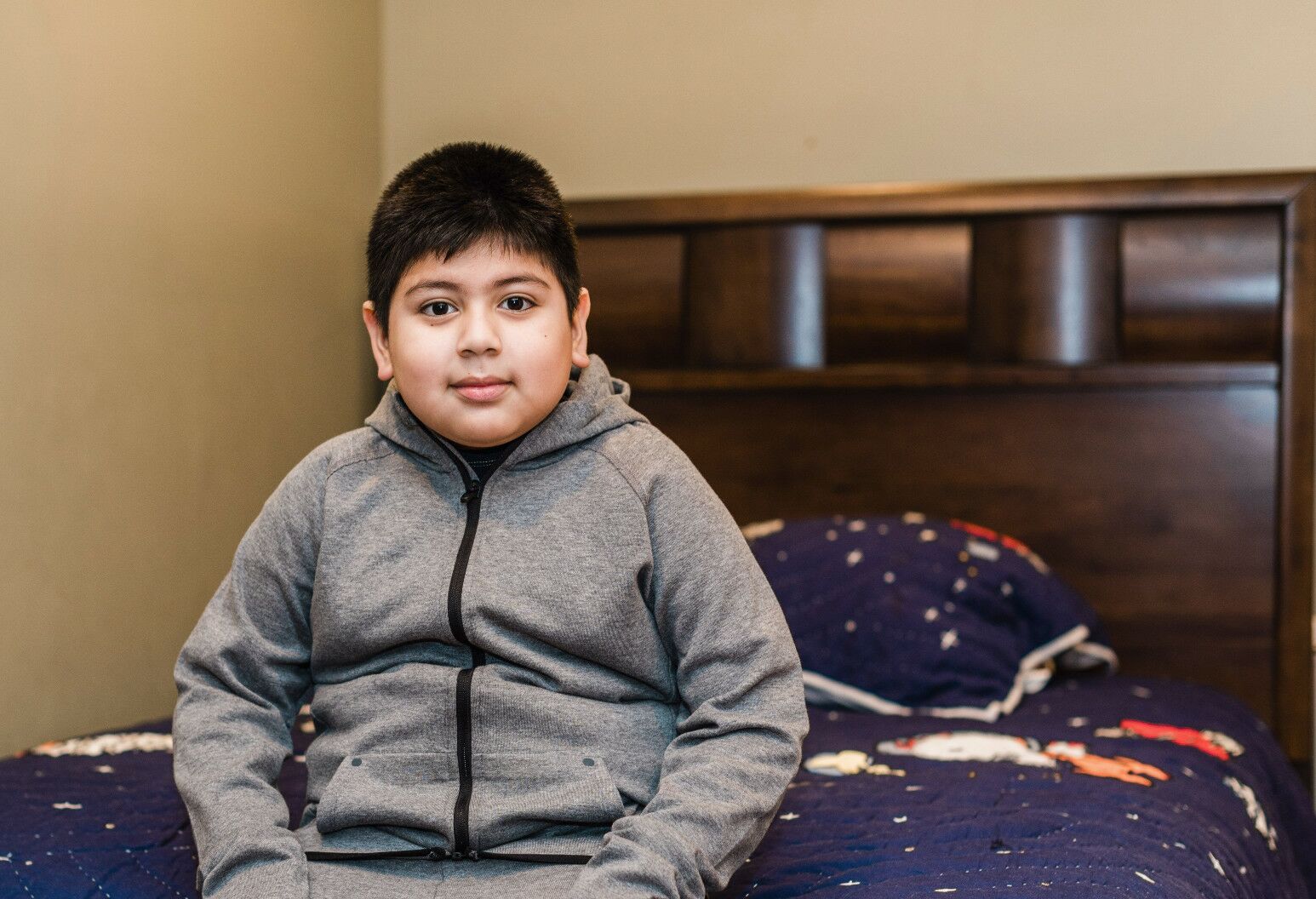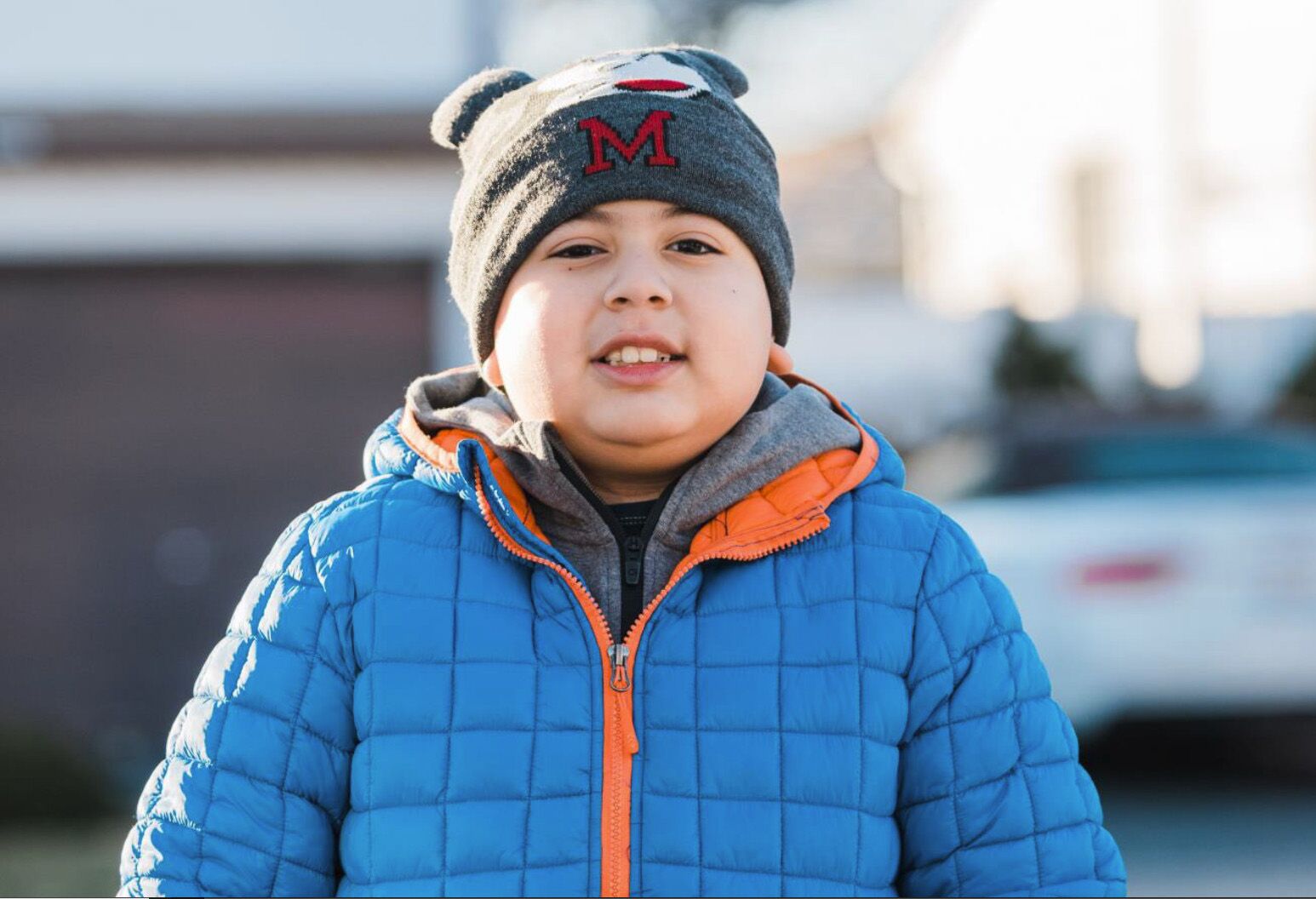269-01 76th Ave
Queens, NY 11040
Our representatives are available to schedule your appointment Monday through Friday from 9am to 5pm.
For a Northwell ambulance, call (833) 259-2367.

When Anderson Pillco, 7, and his father, Carlos, both tested positive for COVID-19 in the fall, they felt grateful to have experienced pretty mild symptoms. Like many children, Anderson didn’t get very sick. “He had a fever for about 24 hours,” Carlos said. “Then, he was really OK. We quarantined for two weeks, and at the end, he tested negative.”
Believing the worst was behind them, the Pillcos went back to school and work and looked forward to the upcoming holidays. But just a few days before Christmas, Anderson came down with a fever and stomach pain bad enough to warrant a trip to the emergency room. The doctors there ruled out appendicitis, told the Pillcos that Anderson probably had a mild gastrointestinal bug and sent them home.
“But he got sicker all week,” Carlos recalled. By Christmas Day, Anderson was still feverish and had a bad headache in addition to vomiting and diarrhea. He didn’t want to get out of bed. An urgent care doctor immediately sent the family to Cohen Children’s Medical Center.
After hearing Anderson’s history, the doctors at Cohen Children’s Medical Center diagnosed him with COVID-19-associated multisystem inflammatory syndrome in children, or MIS-C. A condition that develops after a COVID-19 infection, MIS-C causes inflammation in various parts of the body, including the heart, lungs, brain, kidneys, skin, eyes and gastrointestinal organs. Left untreated, MIS-C can lead to long-term heart damage. It can also be fatal.
Anderson was very sick by the time he got to the hospital, where he was treated in the intensive care unit by pediatric cardiologist Christina Capone, MD. He was put on steroids to reduce inflammation and immunoglobulin, a type of antibody that helps fight infection and inflammation. He was also placed on a ventilator for breathing support and remained intubated for almost a week.
James Schneider, MD, the chief of pediatric critical care medicine at Cohen Children’s Medical Center, said Anderson was a classic case of MIS-C. It typically sets in about three to five weeks after COVID-19 infection and the vast majority of patients have abdominal pain and fever. Most kids, even if they also need ventilation, do very well on treatment and improve quickly.
Anderson went home about a week after New Year’s. “It’s been a long recovery,” his father said, but a steady one. “When he was taken off the ventilator, he couldn’t sit up, use his hands or hold his head straight. The doctors wanted him to go to a rehab facility, but Anderson wanted to go home. He is making progress every day and visits the MIS-C follow-up clinic to see Dr. Capone.” At home, he has physical therapy several times a week to help him regain his strength, and he sees his doctors weekly.
“We want other families to know how serious this is,” Carlos said. “You need to take COVID-19 seriously. We feared we’d lose Anderson and we are blessed that we didn’t. We don’t want other families to go through what we did.”

269-01 76th Ave
Queens, NY 11040
Our representatives are available to schedule your appointment Monday through Friday from 9am to 5pm.
For a Northwell ambulance, call (833) 259-2367.